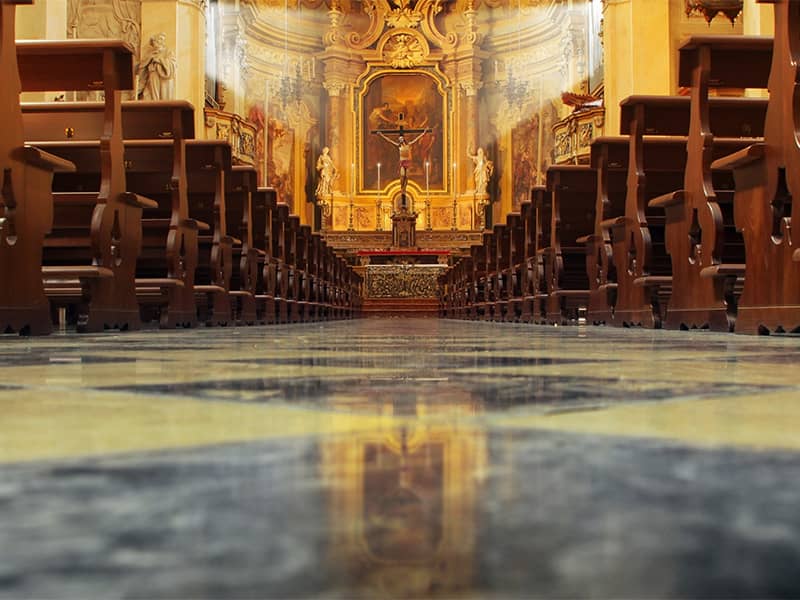Typically for Israel, the awakening was personal and emotional rather than theological.
The climax came Thursday with the pope's unprecedented meeting with the chief rabbis of Israel and his visit to Yad Vashem, the Holocaust memorial.
A sign of the changing attitude toward the pope was the chief rabbis' unexpected proposal that the pope establish a permanent dialogue among the three religions--Judaism, Christianity and Islam--that trace their origins to the Patriarch Abraham.
"It came out in the meeting. We proposed that there be a permanent dialogue between all three religions. It is very important," Sephardic Chief Rabbi Bakshi-Doron told Religion News Service.
The proposal is particularly meaningful because Orthodox Jews--as are the chief rabbis--are typically very cautious about engaging in interfaith dialogue, and often shun such encounters outright.
The attitudinal change has been fueled by the testimonies of more and more Polish-born Israeli Jews, who had known "Lolek" Wojtyla as a boy in Wadowice or whose lives were touched--even saved--by him in the dark and chaotic days of the Holocaust and its aftermath.
"He saved my life. There are no other words for it. Thanks to him I am here," said Edit Sirev, who remembered how the young, good-looking priest came to her aid as she sought to make her way to Krakow, Poland, in 1945, after being released from a German Army forced labor camp.
"He carried me on his back, gave me the first cup of tea and a piece of bread. And then I fled when we reached the monastery," she recalled in tears after shaking hands with John Paul again Thursday at Yad Vashem.
"He took care of me, and I couldn't understand why since no one else had. No one else helped me; he was the only one. He saved me; there is no other way to say it. Thanks to him I am here,'' Sirev said.
Now living in Haifa and a grandmother of five, Sirev said she also visited the pope in the Vatican two years ago to thank him for saving her life.
"He was glad I was here, and was happy to see me," she said. "I told him that in Jewish tradition, a man who has saved one life is regarded like someone who had saved the whole world. I am just sorry to see that the man who was then young and good-looking is today old and very ill, the poor man."
Hanna Abrudsky remembered how the young priest told her to hide from the Nazis with the nuns of the order of St. Ursula, who sheltered Jewish children in a school in Krakow during the war years.
"He was a friend of the order and also a member of the Polish underground," she said. "He told me, `Stay with us.' He saved me. I met him 40 years later when he invited me to the Vatican, the same young girl who was protected so long ago."
Others at the Yad Vashem ceremony who came from Wadowice recalled Karol Wojtyla as a studious young boy but a good singer and well liked by the girls. He lived in an apartment rented from Jews, and his friends included many Jews.
The young Wojtyla was the goalie on a soccer team made up of his Jewish friends, but to Yosef Bienenstock's mind he was a better scholar than he was a goalie.
In newspaper interviews before the Yad Vashem ceremony, Bienenstock described Wojtyla as a "good and quiet kid" and confessed that the future pope had let him copy his homework.
When Bienenstock, who now lives in the seaside town of Netanya, returned to Poland to disinter the bones of his younger brother Romek, who had survived the death camps but died soon after returning home, he found that Wojtyla had not forgotten his old friends.
On the grave was a marble monument to Romek, put there by Wojtyla.
Wojtyla was brought up by his widowed father, a retired army officer, in a town of 6,000 people, one-third of them Jews. His class in elementary school was one-quarter Jewish.
In his conversations with Jews, the pope has sometimes waxed nostalgic about his memories of seeing the Sabbath candles lit on Friday evenings in local homes.
The pope's closest childhood friend was Jewish, Jurik (Jerzy) Kluger, who now lives in Rome. The two maintained their friendship during high school, although the pope continued on to Catholic school and Kluger entered a yeshiva.
Separated by the war, they met again in Rome 40 years later when the pope invited Kluger to lunch in the Apostolic Palace. Kluger's book about the friendship, "Letter to a Jewish Friend," recently published in Hebrew, describes the many instances when the pope stood up to small acts of anti-Semitism by others as a boy.
Kluger came to Jerusalem for the Yad Vashem ceremony. "We've been talking about this for 15 years, that he would come to Jerusalem," he said.

